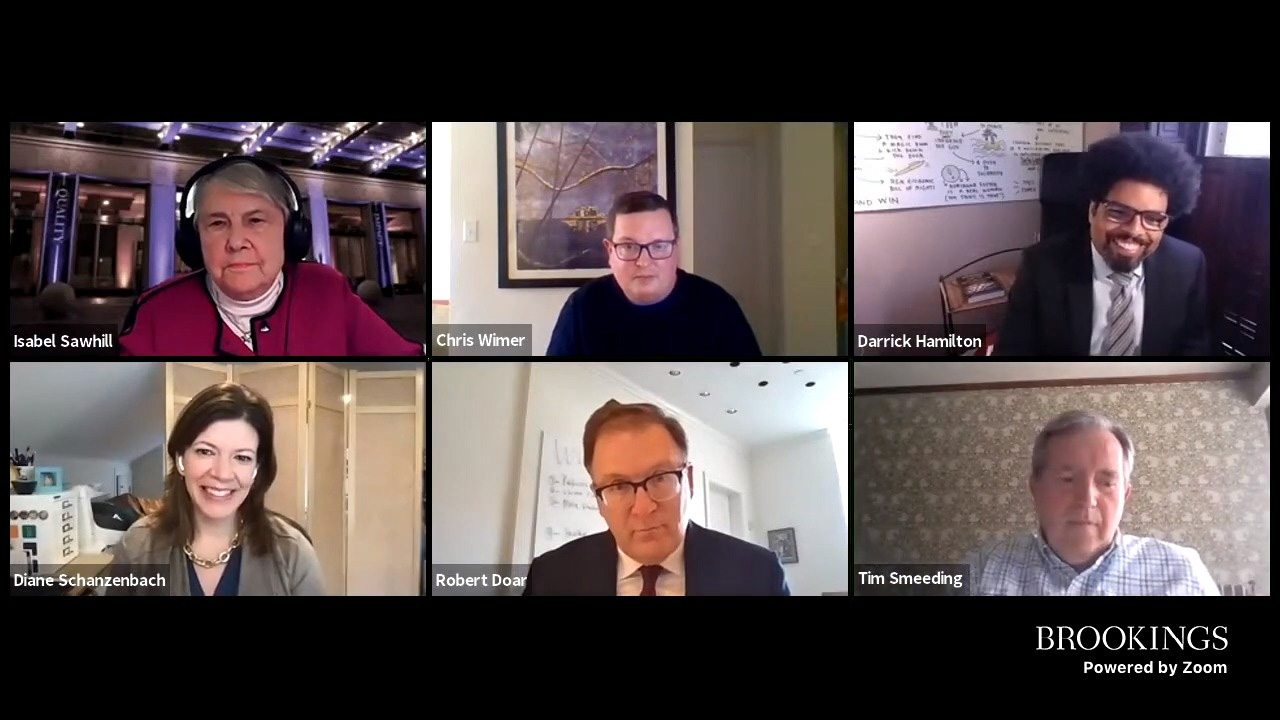Because we can’t take our Early Learning Nation Studio on the road during this time, stay tuned as ELN recaps Top Takeaways from important conversations, town halls, webinars and virtual events from the Early Learning field. Read them all and join the conversation! And visit our Early Learning Nation channel on YouTube for interviews with leaders from education, child development, business, politics and more.
On January 14, Princeton University and the Brookings Institution hosted an event highlighting the latest release of their soon-to-sunset journal Future of Children, entitled Three Trimesters to Three Years: Promoting Early Development. This edition covers topics such as maternal and environmental influences on perinatal development, instability from birth to age three, family income and more.
In light of the journal sunsetting after over 17 years, the editorial team and other contributors shared their reflections, an overview of the journal and its accompanying policy brief. Isabel Sawhill, Senior Fellow at Brookings, moderated the discussion among the following panelists.
- Robert Doar, President and Morgridge Fellow in Poverty Studies, American Enterprise Institute
- Chris Wimer, Co-Director, Center on Poverty and Social Policy, The Columbia School of Social Work
- Darrick Hamilton, Henry Cohen Professor of Economics and Urban Policy; Founding Director, Institute on Race and Political Economy, The New School
- Diane Schanzenbach, Director, Institute for Policy Research; Margaret Walker Alexander Professor of Human Development and Social Policy, Northwestern University
- Tim Smeeding, Lee Rainwater Distinguished Professor of Public Affairs and Economics, University of Wisconsin-Madison
Below are our top three takeaways from the presentation.
1. Paid maternity and family leave matter. Journal editor Anna Aizer said, “Over half of U.S. mothers with infants are employed, and yet we lack a national paid maternity leave policy.” The U.S. is an outlier compared to European countries, though eight states have developed maternity leave policies.
“Paid maternity leave results in fewer premature births, increased on-time vaccination and reduced diagnoses of ADHD [attention deficit hyperactivity disorder] among school-aged children,” Aizer said, “The lack of access to paid leave to care for family members in an emergency this past year has harmed both family outcomes and economic recovery efforts.”
👉 Read more: Let’s Seize Paid Family and Medical Leave Momentum and Make the 2020s the Decade When America Values Families
2. Income support is essential. For families with little savings and no income source other than employment, a loss of a job or work hours can trigger loss of child care, housing and health insurance. The absence of money can potentially compromise important child development processes and outcomes. Wimer said, “From the family stress perspective, it can compromise parent mental health, increase stress and increase harsh parenting.”
👉 Read more: From Research to Reality: A Funder Conversation about Policy
3. Stability promotes healthy development. Editor Anna Aizer said, “Poverty is the main determinant of instability in a young child’s life.” Before the pandemic, 17 percent of young children were living in poverty.
After acknowledging the pandemic and the emergency situation that we must respond to, Doar said, “I do have some concern of taking this situation and using it to develop big, significant, long-term changes that we will live with after we’re passed the pandemic.” He added, “I’m not comfortable with a big increase in the tax credit that isn’t explicitly attached to work,” citing concerns of long-term diminishing returns for families and the labor force. “I want to be in a place where we’re reducing child poverty, and I think that requires a combination of employment and assistance.”
While parents are working, it is key that they have access to high-quality child care. The pandemic has been devastating to the whole industry’s infrastructure. While diagnosing the damage and advocating for rebuilding, Schanzenbach said, “Keeping the role of caregiving along with economic resources for young children front and center is key.”
👉 Read more: The Long-Term Damage of Child Hunger—and What We Can Do to Prevent It

Mark Swartz
Mark Swartz writes about efforts to improve early care and education as well as developments in the U.S. care economy. He lives in Maryland.



